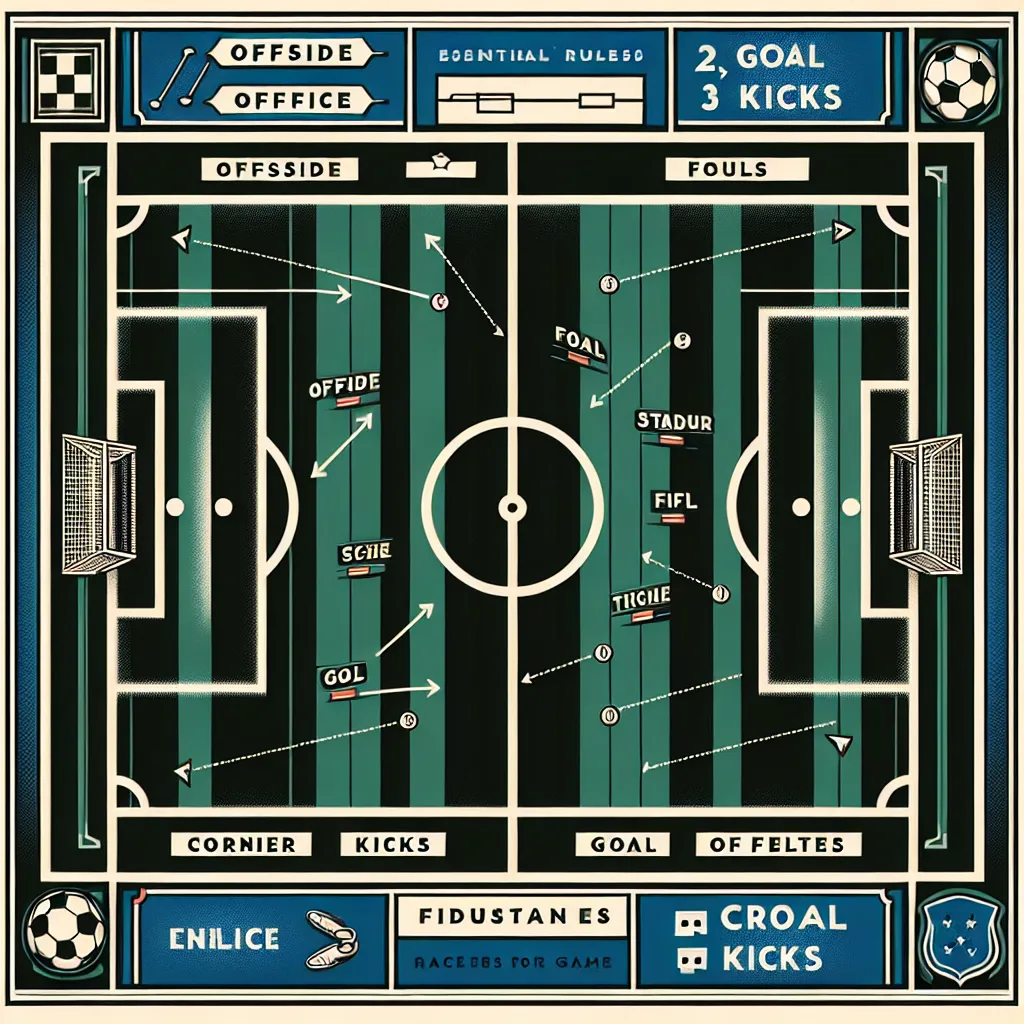Ask AI on The Internet
Question: write an essay Explain five important rules of football
Football, known as soccer in some parts of the world, is a game that is celebrated and played in almost every country. The sport has a set of rules known as the Laws of the Game, which are maintained by the International Football Association Board (IFAB). Understanding these rules is vital for anyone looking to enjoy or participate in football. Here, we will delve into five important rules that are essential to the sport. ### 1. The Offside Rule The offside rule is one of the most discussed and critical rules in football. A player is in an offside position if he or she is nearer to the opponent’s goal line than both the ball and the second-last opponent when the ball is played to them, unless they are in their own half of the field. However, merely being in an offside position is not an offense in itself. An offense occurs only if, at the moment the ball is played to him or her, the player is "actively involved in play" by interfering with play, an opponent, or gaining an advantage by being in that position. The offside rule ensures that football maintains its fluidity and fairness, preventing attackers from merely goal-hanging and waiting for the ball. ### 2. Fouls and Misconduct Football is a contact sport, but there are clear rules regarding fouls and misconduct. A foul is an unfair act by a player, deemed by the referee, to contravene the game's laws, such as kicking, tripping, or charging an opponent. More serious infractions, like violent conduct, spitting at an opponent, or using offensive language, fall under misconduct. The referee can punish such actions by issuing yellow or red cards. A yellow card serves as a caution, while a red card means the player is sent off and cannot be replaced, putting their team at a numerical disadvantage. These rules help to protect players' safety and maintain fairness and sportsmanship in the game. ### 3. The Penalty Kick A penalty kick is awarded when a player commits a foul punishable by a direct free kick inside their own penalty area. The penalty kick is taken from the penalty mark, which is 12 yards from the goal line. Only the goalkeeper and the player taking the kick are allowed inside the penalty area until the ball is kicked. This rule provides a significant scoring opportunity and adds an exciting and tense element to the game. It is designed to fairly penalize teams for significant infractions within the most critical area of the field. ### 4. Substitutions The rules around substitutions offer teams an opportunity to replace players during the course of the game. Traditionally, teams were allowed to make three substitutions during a match. However, recent updates and specific competitions have allowed for additional changes to be made, especially because of extra time or health considerations like the COVID-19 pandemic. Substitutions can be tactical, to replace injured players, or to introduce fresh players to adjust the team's dynamics. This rule ensures that teams can manage player fatigue and maintain competitive balance throughout the match. ### 5. The Goal and Its Validation The objective of football is to score goals, and the rules governing how goals are scored are fundamental. A goal is scored when the entire ball crosses the goal line between the goalposts and beneath the crossbar, provided no foul or infringement has been committed by the team scoring the goal. The introduction of technology such as goal-line technology and Video Assistant Referee (VAR) systems has helped to ensure that the correct decisions are made concerning whether a goal has been scored. This enhances the accuracy of officiating and ensures that the rightful result is achieved. ### Conclusion Football’s beauty lies in its simplicity and the thrill of the game, governed by a set of clear, essential rules. The offside rule maintains the game’s flow and fairness, while rules on fouls and misconduct ensure safety and sportsmanship. The penalty kick rule adds excitement, and substitution rules allow for tactical flexibility. The validation of goals guarantees that the main objective of the sport is achieved under fair conditions. Understanding these rules not only enhances the experience for players and fans but also upholds the integrity and the spirit of the game.
Think your answer is better than the AI's? Post it below.
Other Most Relevant Posts:
If you want your question answered by an AI, click here.







Post your own comment: